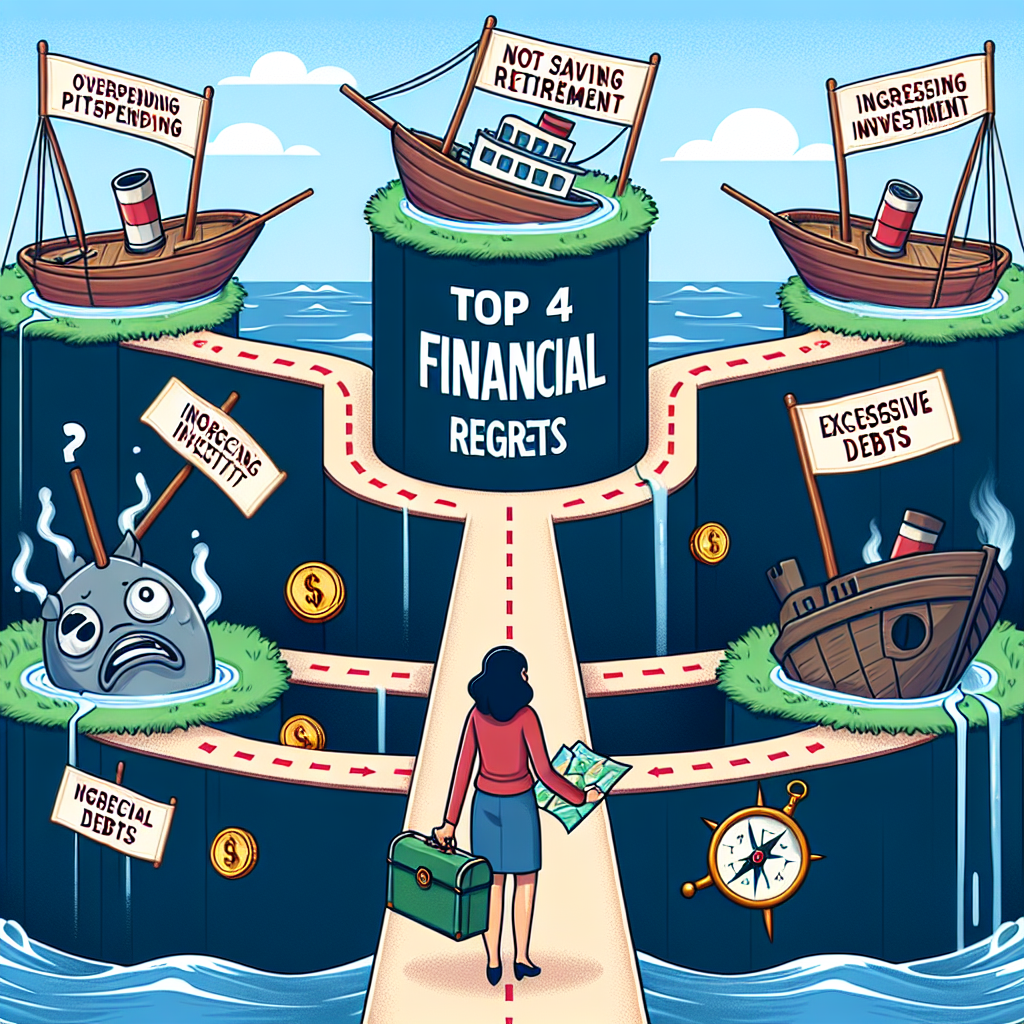Avoiding Common Financial Regrets: How to Take Control of Your Money
Managing your finances can be challenging, and many people look back with some regrets about decisions they made (or didn’t make). If you’re looking to avoid the most common financial pitfalls, you’re in the right place. In this post, we’ll explore four frequent financial regrets and provide helpful tips on how to steer clear of them.
Regret #1: Not Starting to Save Early Enough
One of the most common regrets people have is not starting to save money earlier in life. The power of compound interest means that even small amounts saved early can grow significantly over time.
How to Avoid This Regret:
- Begin Saving Now: It’s never too late to start. If you haven’t begun saving yet, start today with whatever amount you can manage.
- Set Clear Goals: Whether it’s for retirement, a new car, or a house, setting specific goals can motivate you to save.
- Automate Your Savings: Set up automatic transfers to your savings account. This way, you save without thinking about it!
Regret #2: Ignoring Investment Opportunities
Many individuals overlook investment opportunities, often due to fear or lack of knowledge. Waiting too long to invest can lead to missed opportunities for growth.
How to Avoid This Regret:
- Educate Yourself: Take some time to learn about different types of investments. You don’t have to be an expert to get started.
- Start Small: You can invest small amounts. Index funds or Exchange-Traded Funds (ETFs) are great options for beginners.
- Consider Professional Advice: If you’re unsure, consider speaking with a financial advisor who can guide you on the best paths for your financial goals.
Regret #3: Not Having an Emergency Fund
Life is unpredictable. Health emergencies, job loss, or unexpected expenses can have severe financial implications. Not having an emergency fund can lead to significant stress.
How to Avoid This Regret:
- Aim for 3 to 6 Months’ Expenses: Having enough money saved to cover 3 to 6 months of living expenses can provide a safety net.
- Open a Separate Savings Account: Keep this fund separate from your everyday spending to avoid the temptation of using it.
- Contribute Regularly: Treat your emergency fund like any other bill. Make regular contributions until you reach your goal.
Regret #4: Carrying Credit Card Debt
Credit card debt can be a heavy burden and often leads to regret later on. It’s easy to swipe a card and forget about the long-term impact of high-interest rates.
How to Avoid This Regret:
- Create a Budget: Understanding where your money goes each month can help you avoid overspending.
- Pay More Than the Minimum: Always try to pay more than the minimum payment on your credit card bills.
- Use Cards Wisely: Consider using cash for everyday purchases, and reserve your credit card for emergencies or planned expenses only.
Additional Tips to Consider
Aside from the four common regrets we’ve discussed, here are a few additional pointers to keep your financial life on track:
- Review Your Budget Regularly: Life changes, and so should your budget. Regularly assessing your financial situation will help keep you aligned with your goals.
- Educate Yourself About Personal Finance: Read books, listen to podcasts, and follow reputable financial blogs to constantly enhance your financial knowledge.
- Stay Disciplined: Staying consistent with your saving and spending habits even when times are tough is crucial.
Embrace the Journey
Financial management is not a sprint; it’s more like a marathon. It takes time, patience, and continuous learning. As you navigate this path, remember that making mistakes is part of the journey. The important thing is to learn from those experiences.
If you want to delve deeper into stock and investment opportunities, check out Stock Pulsar. This could be a valuable resource as you begin to explore your financial options.
By addressing these common regrets proactively, you can build a solid financial foundation for yourself and your family. The key to financial freedom is to start today — the earlier you take action, the better off you’ll be in the long run!



